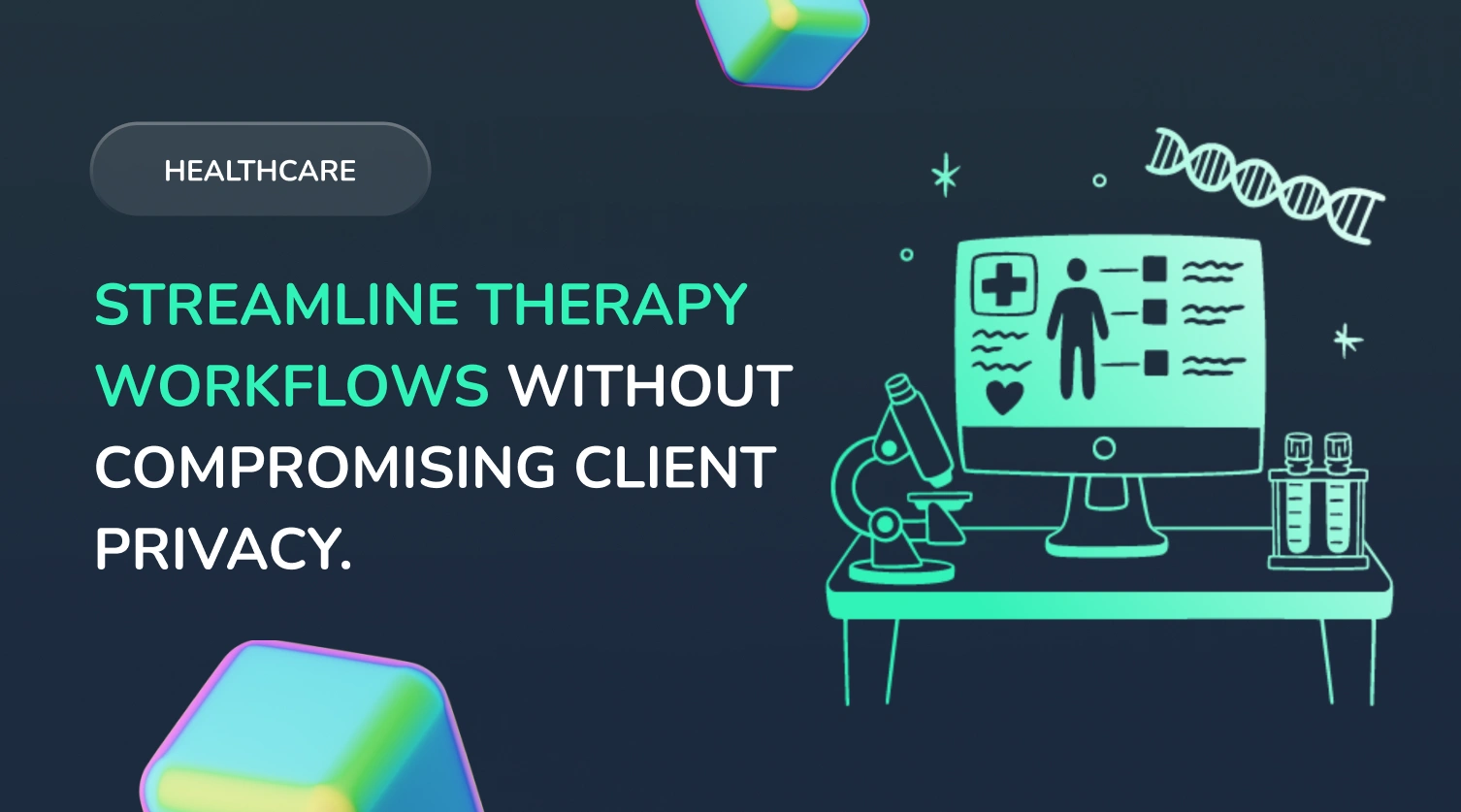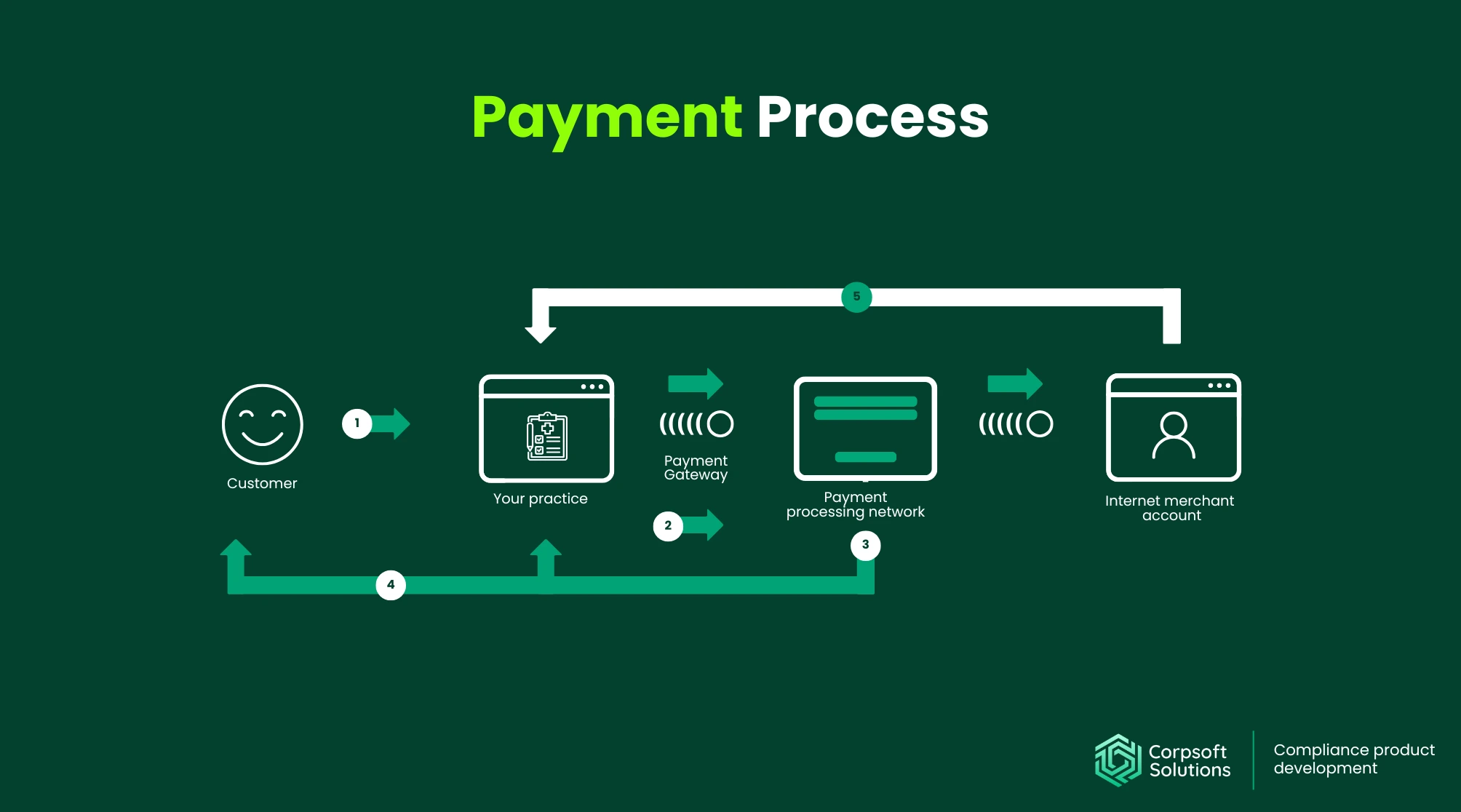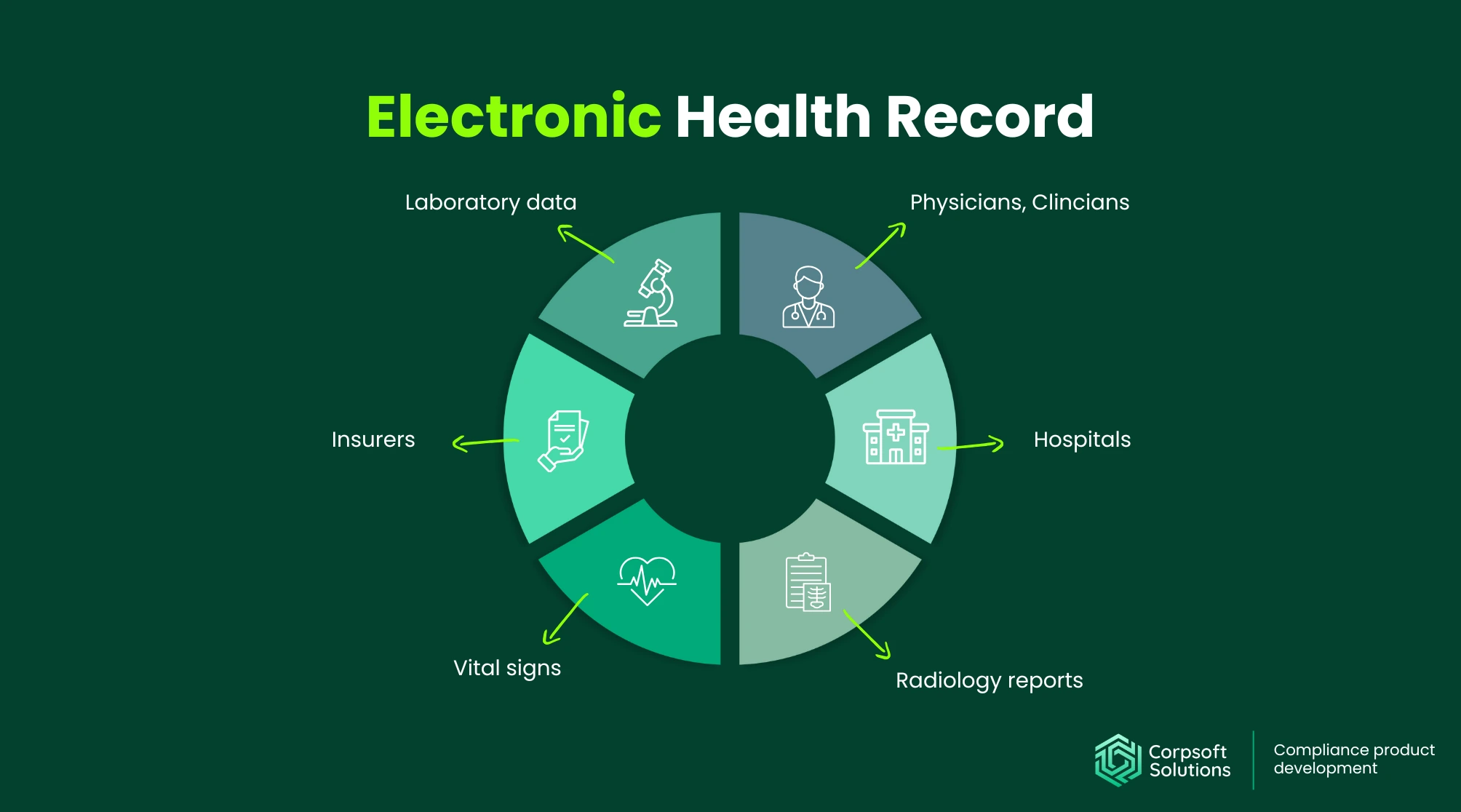
Top 5 Features in CRM for Therapists to Improve Client Management and Privacy
Modern therapy practices face unique challenges. Every day, therapists manage a growing number of clients, session notes, schedules, and payments. Meanwhile, they need to provide excellent quality of care while ensuring complete data security and confidentiality. If therapists forget even about a single appointment, it can affect a client’s progress and their trust in your practice.
Typical CRM (customer relationship management) systems are built for generic workflows, not for health institutions. Such tools often lack appointment tools or intuitive note-taking features. As a result, many doctors end up spending hours on administrative tasks instead of therapy.
We understand the importance of reliable business platforms in such intricate situations; that’s why we’ve created this guide, where we’ll share five essential CRM features every therapist should look for.
So, let’s explore the five essential features that define an effective CRM for therapy practices!
Data Protection and Confidentiality
Healthcare data is known as one of the most sensitive types of data since no one wants to share their health information. If you aim to remain a successful practice, you need to show your patients that their data is confidential and protected with the latest cybersecurity practices.
That’s why your CRM must comply with HIPAA (Health Insurance Portability and Accountability Act) and other local data privacy regulations. So, you need to show your clients that all records, contact details, and therapy notes are stored and transmitted securely, and no one from outside gains access to even a bit of this data.
| Security Feature | Description | Benefit for Therapist and Clinic |
| Data Encryption at Rest | All client records are stored in an encrypted format on the server. | Keeps sensitive data protected even if someone gains access to the database. |
| Data Encryption in Transit | Information sent online (like session notes or attached files) is encrypted during transfer. | Ensures that shared data stays private and can’t be intercepted. |
| Access Control | Allows setting different access levels for team members, such as therapists, admins, or accountants. | Only authorized users can view confidential information. |
| User Authentication | Two-factor or multi-factor authentication for login | It adds extra security because it requires more than just a password to log in. Even if someone steals or guesses a user’s password, they still can’t access the account without the second verification factor. |
| Audit Trail | Records everyone who viewed, changed, or removed information | Helps keep track of staff actions and quickly spot unusual or non-compliant activity |
| Data Backups | Automatic cloud or local backups | Prevents data loss due to technical issues or system failures |
| DDoS & Server Protection | CRM servers are safeguarded against cyberattacks and downtime | Minimizes risk of service interruptions or lost access |
| Encrypted Backups | All backup files are encrypted. | Adds an extra layer of protection in case backup data is accessed or stolen. |
Investing in such an advanced CRM helps you keep calm during the current storms of cyberattacks. You can be sure that no one from outside can access even a bit of data, while safeguarding it even from potential internal attacks.
Appointment Scheduling and Reminders

Managing your session schedule is one of the most important parts of running a therapy practice. Manual scheduling is prone to human error, so you may face missed appointments. While it’s sad in other practices, such as dental, in the mental health field, it leads to devastating consequences.
Thus, you should use a CRM that is tailored to your specific practice with:
- Automatic client reminders, where you send notifications via SMS, email, or messengers before each session to reduce no-shows and last-minute cancellations.
- Easy therapist calendar management, where therapists can view, reschedule, or block out time for personal tasks with just a few clicks.
- Integrate with Google Calendar, Outlook, or other personal calendars to avoid overlaps and confusion.
- Smart scheduling with breaks and queues, where the CRM automatically accounts for session length, therapist availability, and room occupancy.
- Recurring sessions and bulk reminders, where you need only set it once, and after that, the tool automatically books sessions in advance.
With automated reminders, you no longer need to worry about forgotten sessions or empty time slots. It eases your mental load and keeps clients consistent, supported, and engaged in their healing journey.
Payment System Integration

Financial transparency and payment convenience are key factors in building client trust. If the patient views the payment process as too complicated, it creates unnecessary tension. In the long run, it deters a patient from your practice, so they may switch to rivals.
To ensure that you have a patient-friendly payment system, include:
- Multiple payment options. Let clients pay the way they prefer, whether it’s Apple Pay, Google Pay, PayPal, Klarna, or a standard credit/debit card.
- Secure transactions, since all your payments go through certified gateways that meet international security standards (like PCI DSS). You should never store sensitive data unencrypted.
- Automatic invoices and receipts, since your CRM should instantly generate invoices, send digital receipts, and issue gentle payment reminders.
- Transparent billing and payment tracking, so therapists can see which sessions are paid, pending, or overdue. It eliminates awkward conversations and confusion.
- Real-time analytics that help your staff monitor cash flow, track revenue trends, and build detailed financial reports.
Such integrations show clients that you will adapt to their needs, so they will begin to feel even more secure with you.
Electronic Record-Keeping (EHR-Lite)

Your notes are a core part of the therapeutic process. They help you track progress, analyze past sessions, and plan future work. But when notes are scattered across physical notebooks and digital folders, things quickly get messy. Your therapist may simply lose insight in this swamp.
If you want to be sure that no data is lost, you need to implement an electronic record-keeping system in your CRM with:
- Session notes are directly linked to clients, so a therapist can write and save notes during or right after sessions, automatically tied to each client’s profile.
- Structured and searchable data, since you can tag, categorize, and filter information for faster navigation and better analysis.
- Full client history at a glance, where you can instantly access everything from first consultations to the most recent sessions in one secure space.
- Attachment support, so your therapists can add any related files.
We also recommend you keep a clean and distraction-free interface, as it helps your staff to focus on achieving insights rather than getting tired of administrative clutter.
Analytics and Reporting
Running a therapy practice without a great analytics solution is like navigating in the dark. If you don’t have enough insights, you don’t even know what to improve, as there is no information about your financial metrics and patients.
Thus, you need to ensure that the chosen CRM has solid analytics tools that allow you to track client processes and workload visualization, so you can easily optimize your practice.
Look for tools that allow you to track key performance indicators (KPI), such as new client acquisition, session attendance rates, therapy program durations, or financial metrics. It will give you a complete picture of both clinical and operational performance.
It will be great if the chosen solution supports exportable reports, so you can generate PDF or Excel reports for accountants, tax purposes, or internal analysis. With these insights, you can streamline operations, support client progress, and keep your practice financially healthy.
Final Thoughts
Investing in the right CRM helps you safeguard the data of your practice while providing exceptional service for your clients. A CRM tailored for therapists streamlines appointment management, automates reminders, handles sensitive data, supports session notes, provides clear analytics, and much more.
It reduces administrative stress, so your doctors can focus on actual patient care. With the right tools, you can track client progress, monitor finances, and optimize the schedules of every staff member of your clinic.
Subscribe to our blog

